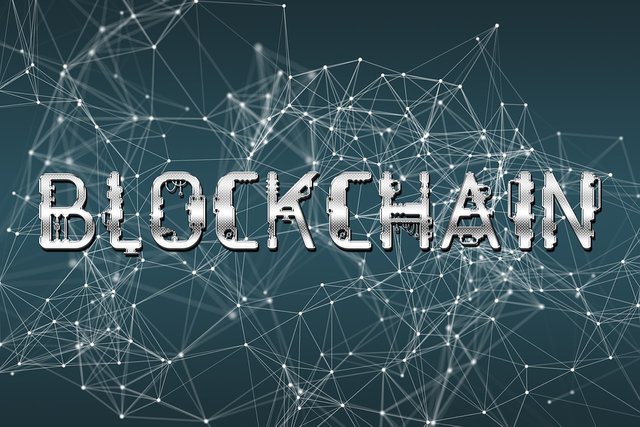The day the world went blockchain and the free spirits went rogue
The whole world is going blockchain. One day soon I envision all the nations of the world giving up paper money and tuning to cash that’s digital. In fact the IMF and World Bank released a report this week suggesting that the central banks of the world may one day issue digital currencies. A paper on the IMF website concludes that despite regional differences, countries are gradually accepting the fact that they need to move with the times in what they call the fintech sector.

Central banks of the world begin to show interest in digital currency
A survey conducted by the IMF includes 96 countries who have responded so far, and several of their central banks are considering the idea of implementing some form of central bank digital currency (CBDC). Those testing or on the verge of releasing such a product include Uruguay, Bahamas, China, Eastern Caribbean Union, Sweden and Ukraine. Others are conducting extensive research still on the potential of digital currencies. Both emerging and developed economies are pursuing the concept. In the developed world the use of paper fiat money is fast disappearing already as people use credit or debit cards for most transactions.
Banking the unbanked – or is it shackling the free?
In the developing world the concept of digital cash is one that central banks are hoping will allow the incorporation of the unbanked, as they’re called, and for all involved the reduction of banking fees is an added incentive to go digital. One thing central banks don’t like is the concept of anonymity though, as you might find in some cryptocurrencies. For example it’s possible to send your crypto anywhere in the world without being traced if you use the right coin, like Monero, for example.
But will it be a real cryptocurrency?
Real crypto enthusiasts are skeptical of central banks and it’s likely that if they do implement a digital national currency of their won, it wont be decentralized or anonymous, so won’t be a real cryptocurrency as such, like Bitcoin, but will be a digital fiat currency. Nevertheless, the blockchain architecture will be the underlying platform presumably. Central banks definitely still want to be able to trace your financial transactions, so you are not as free to be your own sovereign entity despite the use of a digital asset.
The interconnected cyber world
We actually already have some cryptocurrencies that are basically centralized, like Ripple (XRP), which is used by banks currently. The “banker’s coin”, as it’s known, is also the black sheep of the cryptocurrencies, avoided by those who align themselves with the cryptographic and cyberpunk OG (original gangster ie. veteran) community. The real interest for big banks is cyber-security and data protection, since the cyber world is borderless, and so risk spreads very easily unless security is tight. A national digital currency would need to address this issue before all others.
Asia leads the way
Much of the cyber-banking world is already interdependently connected across borders in cyberspace, particularly in developed nations, but curiously it’s Asia that leads the way in fintech. China and India are global leaders, the latter already rolling out large scale adoption of the mobile payment system. Nevertheless there is obviously going to be a gap between rich and poor in those countries, as well as urban and rural, with both nations still largely rural in population demographic. Even the gender divide is still significant there too. India just concluded it’s biggest India Dapp Fest and the nation’s biggest blockchain summit to date earlier this month, with leaders of the sub-continent giving presentations over three days. India’s Matic token CEO, recently launched on Binance exchange as an IEO and traded against USDT and BTC, was there.
Sub-Saharan Africa leaps ahead
An interesting evolution is that of Sub-Saharan Africa as a global leader in mobile money transfer technology, by numbers of account holders and by cash volume transacted. Almost 10% of the region’s GDP is through mobile money payments (compared to Asia’s 7%) in a region where the smart phone is the device most utilized. Charles Hoskinson co-founder of Ethereum and lately of Cardano cryptocurrency fame, has already been to Africa personally to look into rolling out facilities for crypto growth there among the less advantaged or connected.
The European Union is divided
As advanced as they are, the EU cannot come to a cohesive agreement in their fintech policy. They are now a Union in name only. This is most evident in the difference between the UK and the mainland, unsurprisingly. The City of London is obviously far ahead, being a financial leader in the world, along with New York and the Vatican (the three esoteric or occult centers of the elite for centuries). London has its own rules basically, so they are still limited by that inability to see eye to eye. I wouldn’t be surprised if the Euro collapses soon, with countries like Italy and of course Greece breaking away. The south of Europe is a different entity to the north and the idea to combine them really didn’t work out so well – especially for the south.
Will you accept the microchip?
Either way, it appears as if in time the world will go completely digital in money, with paper fiat becoming a thing of the past. A piece of plastic is our current means of payment, and in some countries the smart phone does it for you. Who knows – it may be the implanted chip next, with all your data, bank account, health record, and social credit score all implanted, so that any camera can identify you, see what you spend your money on, where you go, with whom you interact, which websites you visit, what information you read and everything else about you. Drones will be able to target you anywhere, and all your funds will be vulnerable to being cut off by the central banks and power structures, so that you will have to keep in line like a good sheep.
Innovation but at the loss of your sovereignty
To the mainstream society, a digital currency in a world without cash seems innovative and evolutionary, but it won’t be Bitcoin or Monero, it won’t be decentralized and it won’t be anonymous or private. So it will be the tech without the perks of empowering your right to sovereignty. This form of digital tech, even based on blockchain, will only empower the centralized political and banking sectors and tighten their hold over the masses. That and AI will be the current next Industrial Revolution, based on 5G, and it’s not looking good for the individual.
When the planet goes Chinese
I certainly don’t want to live in a global China, where every word I say or write, every person I speak to, is scrutinized by algorithms for red flag triggers. I would rather go live in a forest or a cave in the mountains. And some citizens will do that. They will value their freedom more than the luxuries of city life. Fortunately there are those who have the technological know-how to rig up a system that will still connect to the internet satellites, or more specifically to the blockchain satellites, that are private and independent of the mainstream internet system. These satellites already exist, and they run the blockchain. So with solar power and decentralized satellite tech we can leave the sheep pens and live free outside the system, as the rest of humanity gets chipped and dipped like a sheep vaxxed on chemicals with no freedom of speech or thought. Welcome to the new world.

We were discussing this issue just the other day my friend.
Yes, paper money will become obsolete and banks over here are already closing branches down to engage with their clients in the new way.
But they certainly never will give up their control.
From the start they fought against crypto and now they will join crypto, but on their own terms and regulations.
The masses will be turned into an automated money machine, that can be controlled from anywhere at any time.
I am hoping to have departed this planet before it manifests.
Blessings.
Good strategy, have your exit plane in place before things deteriorate too much. The banks are owned by some nefarious characters who may not have our best interests at heart.
If we only knew if we only knew! But I am prepared and ready for the new world and it’s endeavours but I feel for my grandparents generation it’s a hard thing to understand even when you are 21 like me hahahahaha so for them ......
Have a great day
Yes it can be harder for the elderly, though it depends on your mentality. My mother is so old that she has never even used a computer! OR a smart phone. I try to teach her the basics on my phone and she is gradually getting it. I am probably your parent's age already so our generation from the late sixties birth years are lucky to have caught the internet age still. Your generation is on a totally new level of course. But we will all become the elderly one day as progress marches onward, leaving a lot of us behind...unless we make an effort that is.
I hope they Will get around in the digital world without help. But crypto i dont know hahahah
Good point. New Tech is the hardest thing for the elderly to follow.
Ah, free spirits and blockchain, that's some kind of combination. Who knows what the future will bring, things are changing fast
Good point, the sky's the limit. Things are changing faster than a parabolic bitcoin bull run.